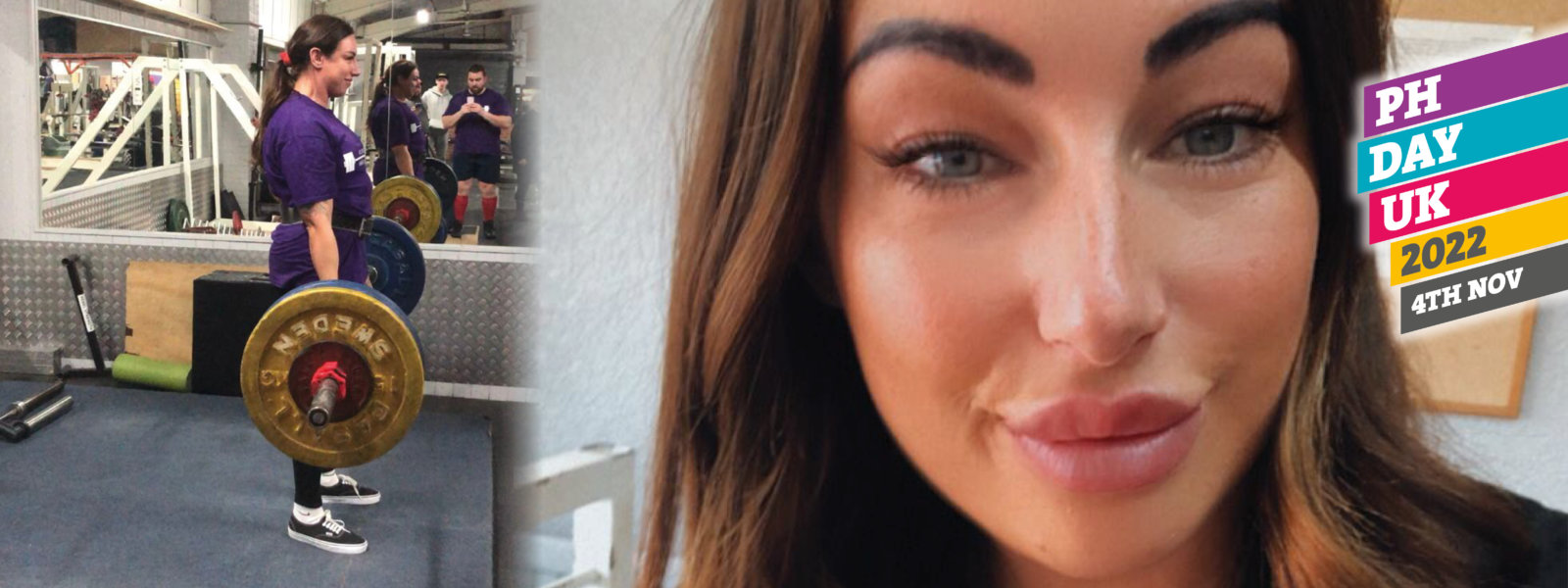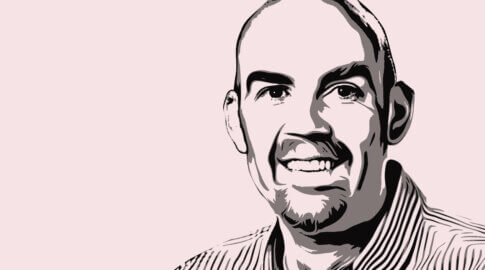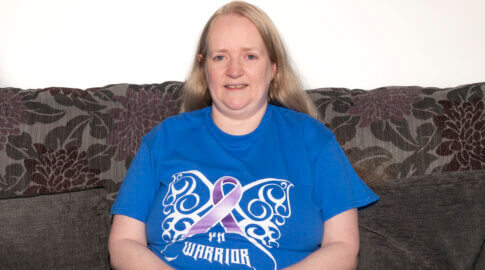“I still feel like I have to prove that I’m ill”
Talisa Shurlock is 34 and lives in Essex. She was diagnosed with PH in July, after a long battle to find out what was wrong – and some people still don’t understand her invisible illness.
Talisa is sharing her story for PH Day UK to raise awareness and help others who may be feeling the same.
“I was exercising at home during the first lockdown when I started getting dizzy and out of breath. I used to go the gym every day before they shut, so I was a fit person, which is why I noticed it wasn’t right.
When I saw my GP about it, I was referred to an asthma nurse and given an inhaler. I knew I didn’t have asthma, but because of the pandemic, having a spirometry (lung function) test wasn’t an option.
For a whole year, I was trialed on different inhalers, but none made any difference.
Just after Christmas 2020, I went back to my GP and asked for a respiratory referral. I was also given a long covid referral, as they thought that’s what could have been making me ill.
The long covid appointment came first, and the doctor couldn’t understand why my oxygen levels were so low during the six-minute walk test I was asked to do. I had five or six appointments to investigate long covid, but it wasn’t diagnosed.
Things were getting worse and worse throughout last year. I went abroad, and when I walked up a flight of stairs at the airport I passed out. It got to the point where I couldn’t even get dressed without being out of breath, and I couldn’t walk and talk at the same time.
It was all very frustrating because I felt like the doctors I saw thought I was making it up. I was trying to explain I was out of breath — but they were telling me I had a clear chest x-ray, I didn’t have asthma, and I didn’t have long covid. I kind of felt like no-one really believed me.
Finally getting answers
Eventually, in March of this year (2022), my respiratory referral came through and I had a number of scans, one of which showed a thickened artery.
I was referred from my local hospital to the specialist PH centre at Royal Papworth Hospital. When I knew I was being referred, I looked up PH and researched everything about it, so I sort of accepted that’s what it would be.
I did a weightlifting competition just one day before my right heart catheter [a ‘gold standard’ but invasive test used to diagnose PH] and the pulmonary hypertension was confirmed.
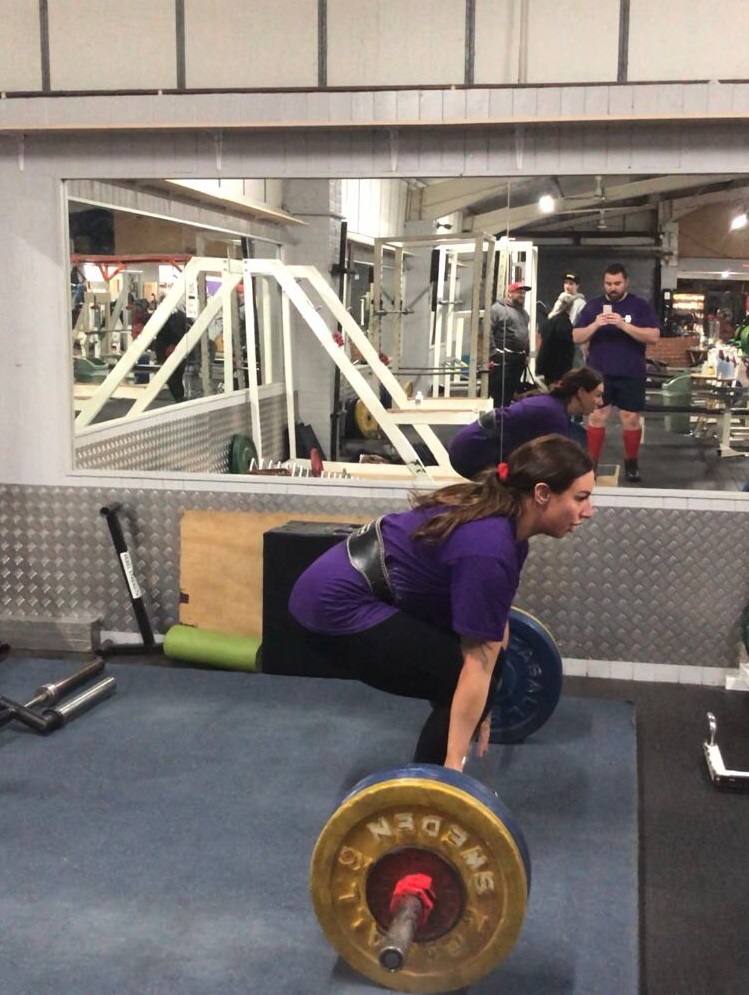
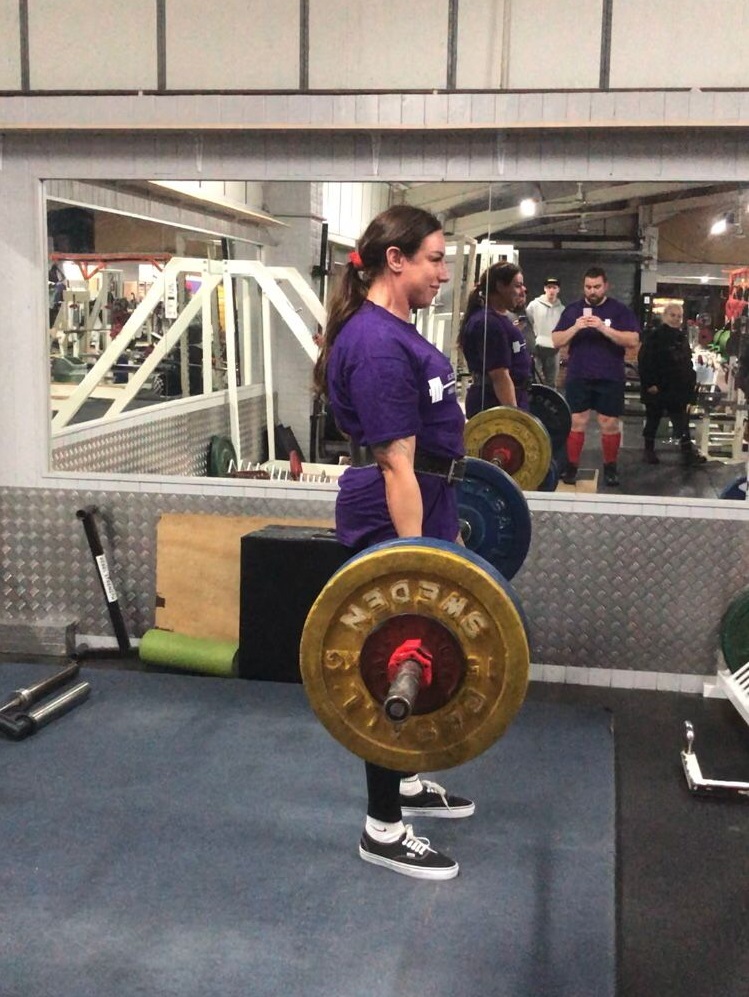
A tiny bit of me was relieved they knew what was wrong so I could then go forward and have treatment.
I was told straight away that I shouldn’t do any more weightlifting. I still work out, but without weights, as it helps with my anxiety. Sometimes I wonder what the point is, but it’s important to me that I still exercise every day.
Living with a disease no-one knows about
My family and friends are as supportive as they can be, but it’s hard because no-one has ever heard of pulmonary hypertension. I feel like I’m always having to explain what it is because I don’t look ill. It’s invisible unless I try and walk up some stairs.
I feel paranoid that people don’t believe I have a serious health problem, because I go to the gym, and I don’t look unwell. I feel like I have to prove there is something wrong.
I have social anxiety, so I didn’t go out much anyway, but PH has made the anxiety worse.
I feel self-conscious using disabled toilets when I’m out because of PH being a hidden disability. The toilets are often in the middle of a restaurant or in front of everybody, and I feel uncomfortable that people may be thinking there is nothing wrong with me.
Having PH has affected the anxiety in a number of ways. I haven’t been able to work for a while [because of being ill] so now I’m scared to go back to work.
It’s also the low mood. It does sometimes catch me and make me feel quite depressed, even though I know there are other people with PH who are worse off than me. Thinking about the future is difficult.
But exercising helps keep me positive and I’m also having cognitive behavioural therapy (CBT) for the anxiety which is helping. My specialist centre has also been amazing.
I want people to understand that just because you can’t ‘see’ PH, it should still be taken seriously. I still feel like I have to prove that I’m ill sometimes, and it would be so much better if people knew more about it.
I also wanted to share my story because it has really helped me reading about others who have PH. So, if I can help just one person in return, it will be worth it.”
